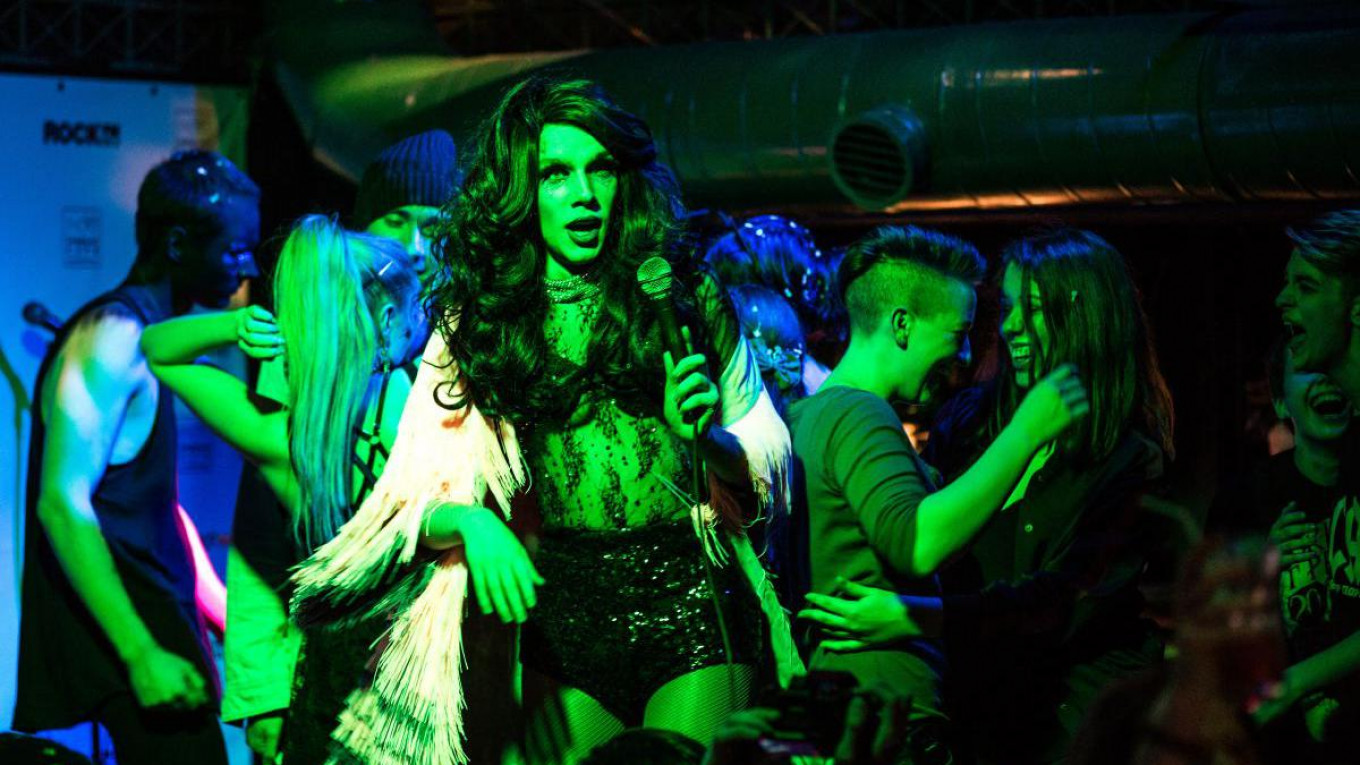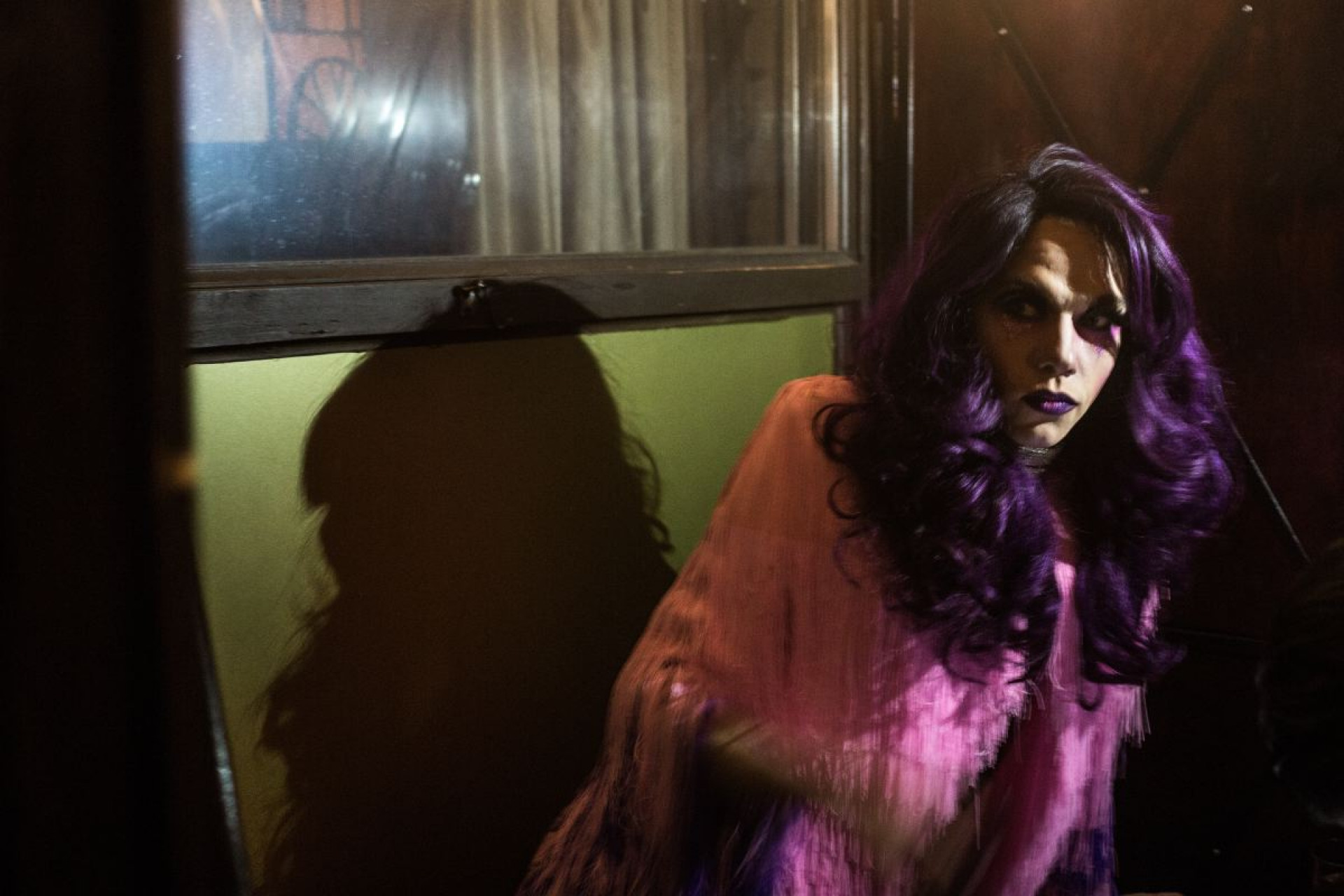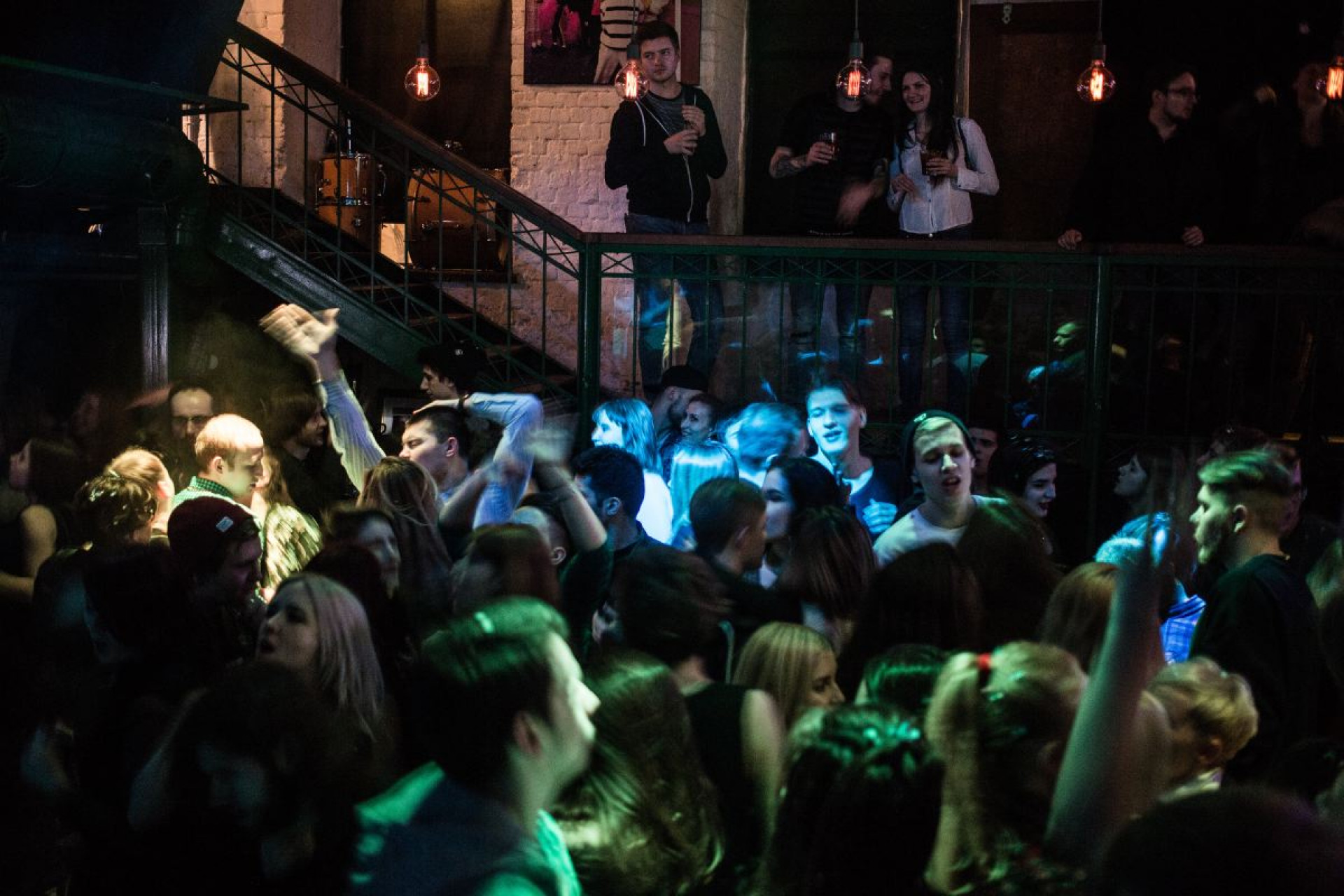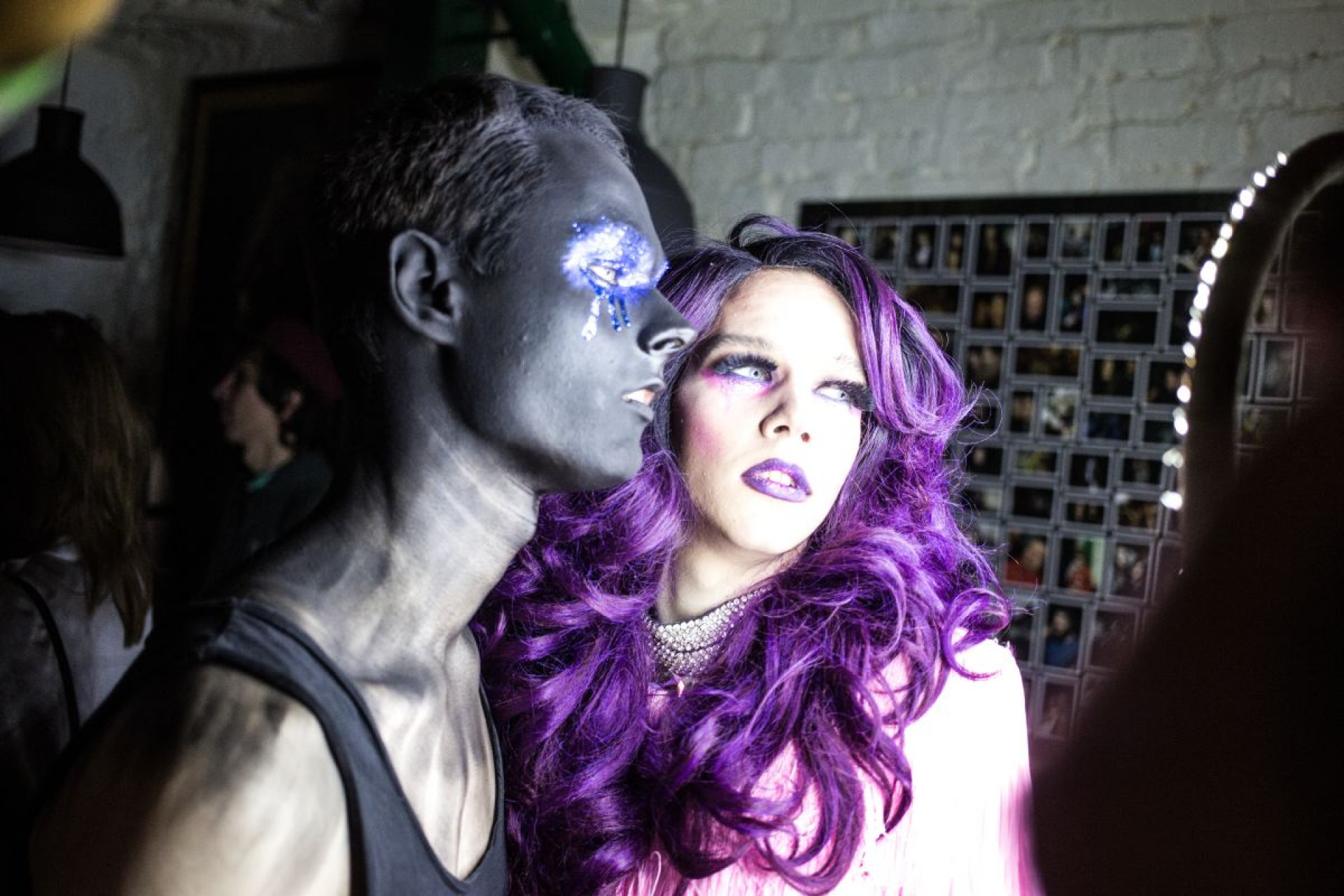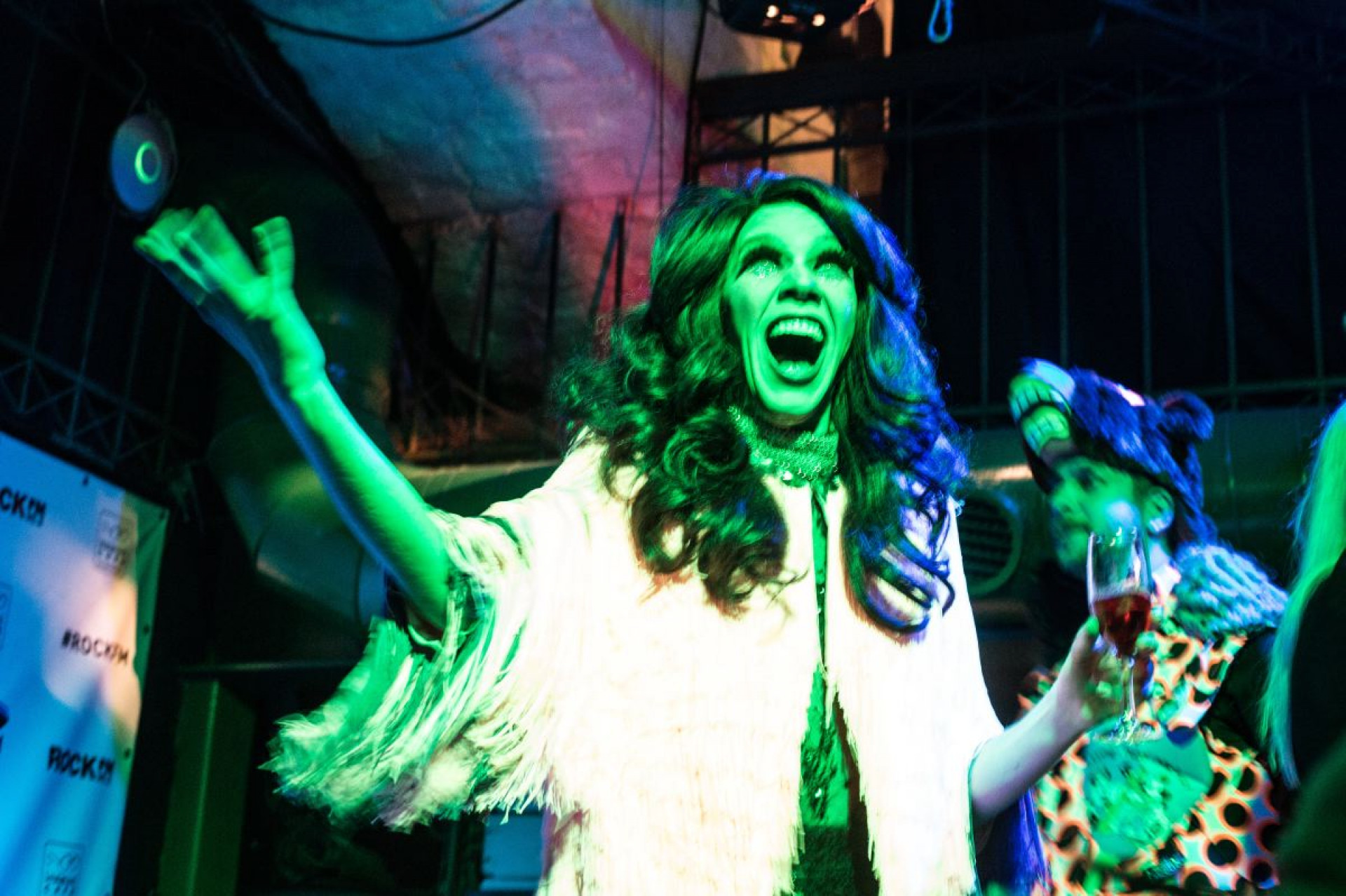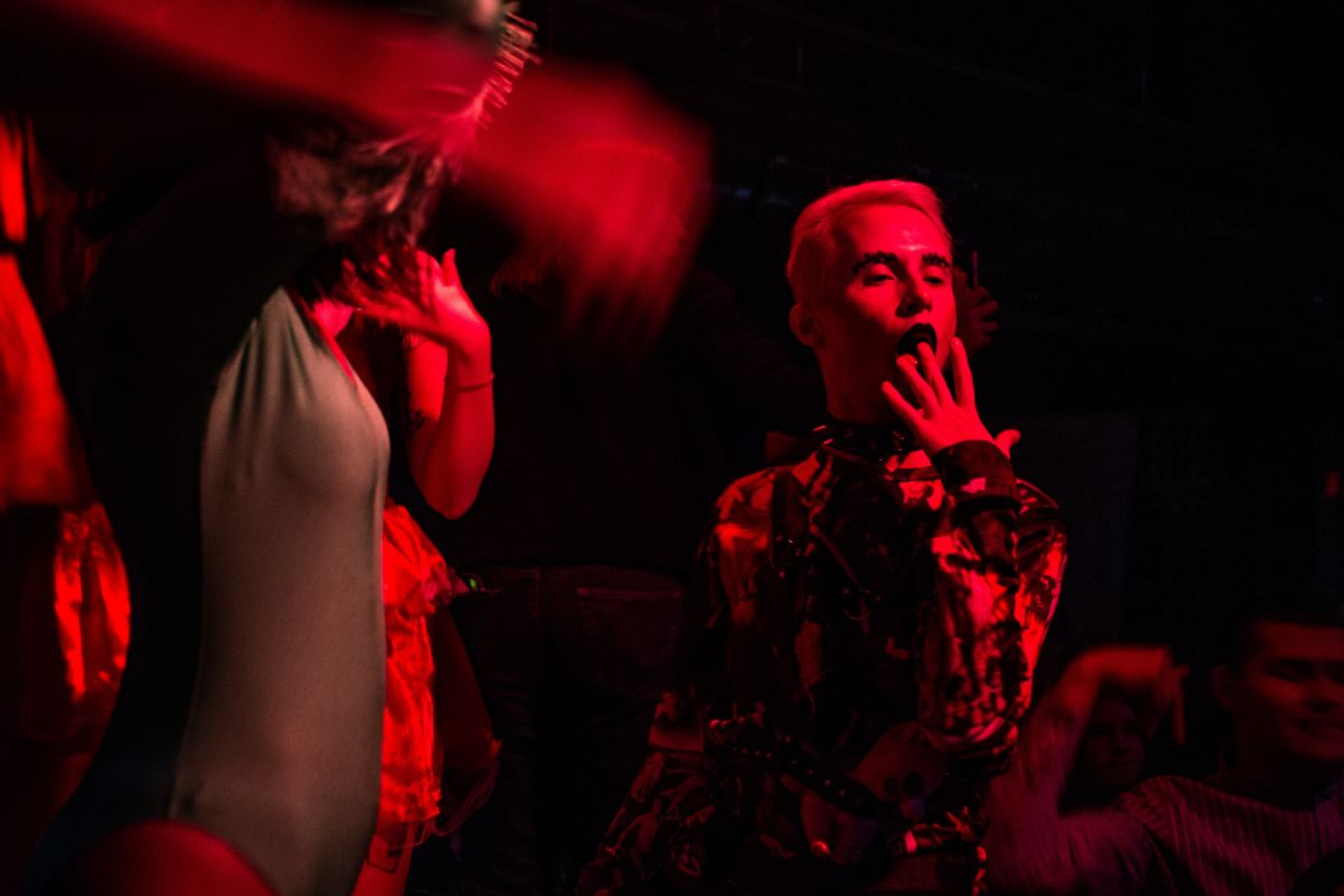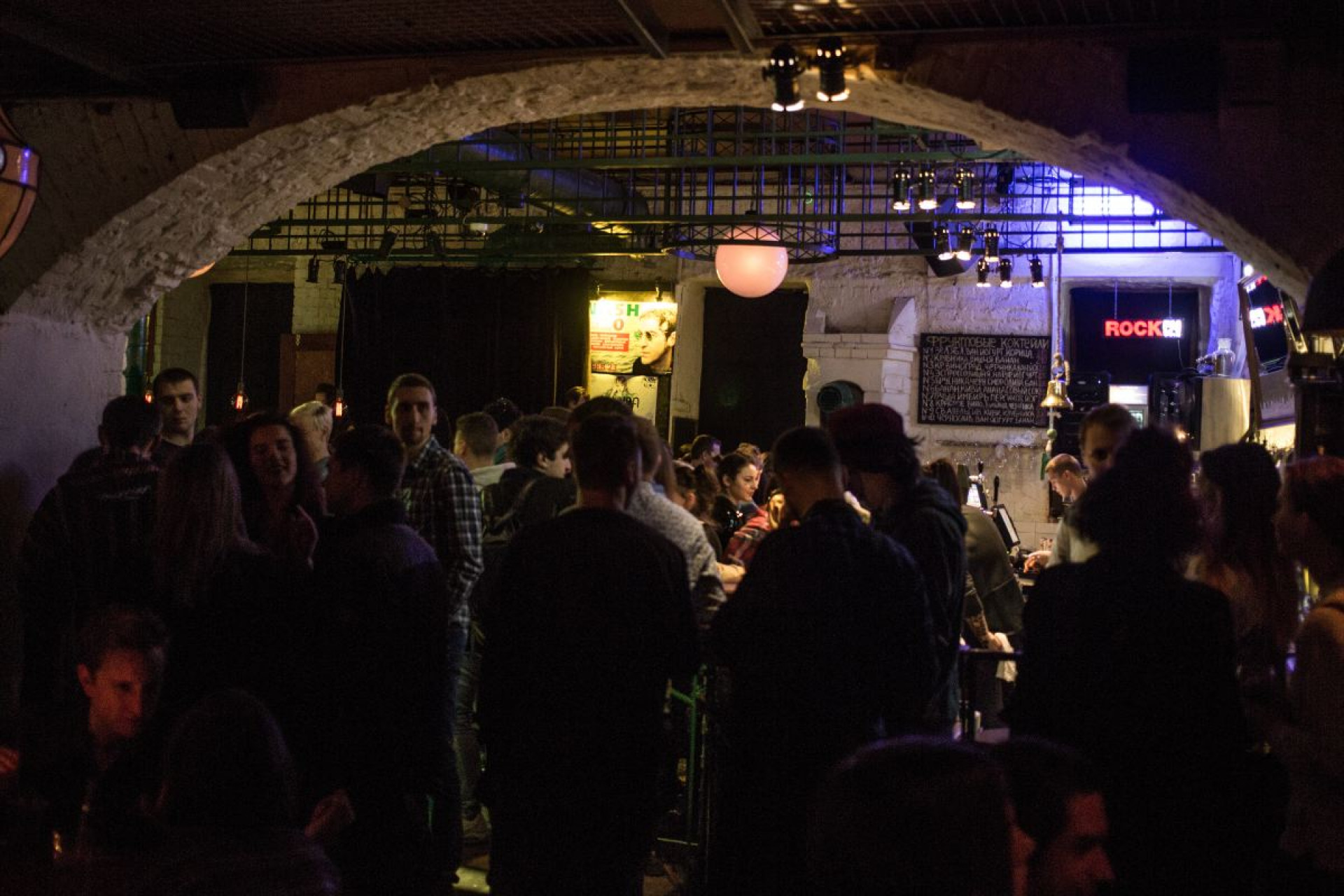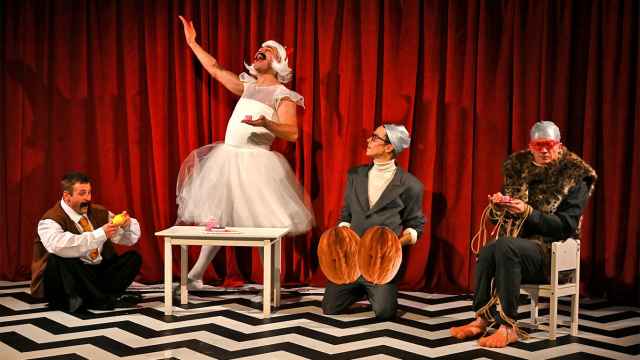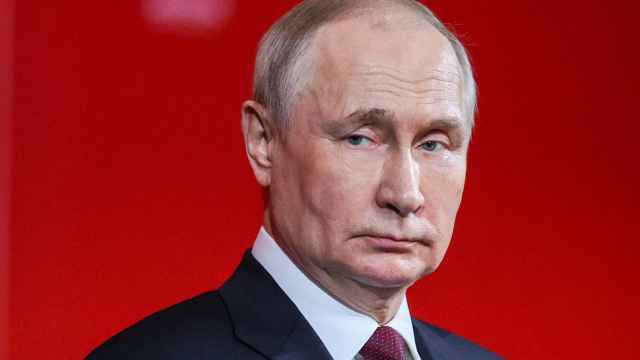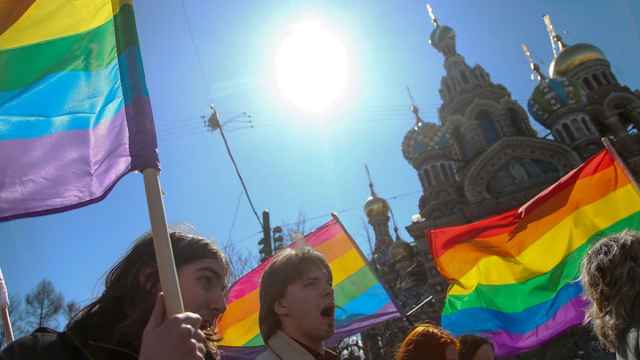On the dimly lit back patio of Moscow’s Imagine Cafe,
Kamilla Crazy White is holding court. As she sips a
cocktail, fawning admirers venture to her table, kissing
and embracing her. But Kamilla quickly shoos them away.
“Don’t distract me. I’m doing an interview,” she says, turning
back to two The Moscow Times reporters. “Now, where was I?”
Tonight, the young Russian drag queen is the belle of the
ball at Moscow’s hottest “freak party.” Organisers — who insist
on anonymity — have marketed the event as a festival of
flamboyant costumes, underground music and free sexuality.
It is a metaphorical middle-finger to Russia’s official state sponsored
conservatism.
Soon enough, it is Kamilla’s turn to take the stage. Dressed
in a raspberry-colored wig, a fluffy pink and purple shawl,
black leggings and imposing high-heeled boots, she gyrates
and lip-syncs to three Lady Gaga numbers. The crowd cheers
ecstatically.
Drag — the performance art of impersonating women —
has a storied history in modern Russia. But with the country’s
political shift toward so-called traditional values and Christian
conservatism, it now finds itself in an odd place.
Communism Undressed
Known as travesti in Russian, drag flourished in the heady
days of Perestroika and the early years after the Soviet collapse.
In the late 1980s, character actor Vladislav MamyshevMonro
grew famous for performing surreal, feminized interpretations
of Soviet leaders — including Gorbachev.
Mamyshev-Monro was inspired to take up drag by the movie Some Like it Hot, the only Marilyn Monroe film tolerated
by Soviet censors. He even adopted the surname Monro
as an homage to the iconic actress and performed as her. His
artistry helped to push drag into the mainstream.
Other acts, often emerging from Russia’s burgeoning gay
scene, also gained popularity. During the early 2000s, Birds of
Paradise, a four-member drag collective, toured across Russia,
and even won a contract with a cosmetics company.
The group inspired Felix Mikhailov’s 2009 film “Jolly Fellows,”
the first mainstream Russian film about drag queens.
The film depicts five male drag performers recounting their
life stories during a road trip. It ends on a sobering note when
the protagonists are confronted by violent, homophobic
thugs. Their implied murder served as a stark reminder of the
hostile environment in Russia. A year after the film’s release,
Mamyshev-Monro was himself assaulted.
Since then, the situation has hardly improved. In 2013,
Russia passed a law criminalizing so-called “gay propaganda”
directed toward minors. The law had a chilling effect on the
public presentation of gay people and gay culture.
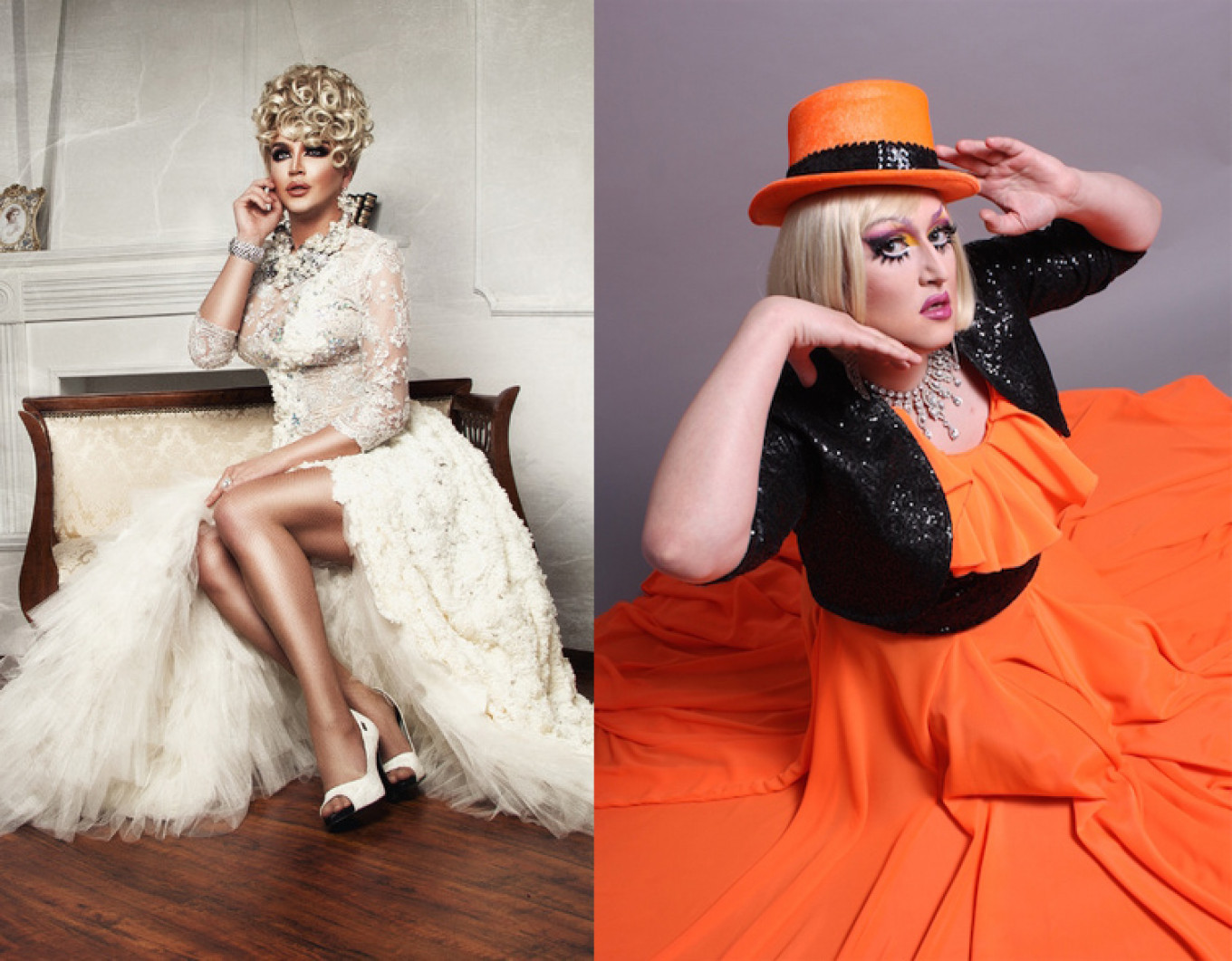
The law also appears to have affected societal attitudes.
When Austrian Thomas Neuwirth’s bearded drag persona,
Conchita Wurst, won the Eurovision Song contest in 2014,
many Russians expressed outrage. Some wrote to officials
calling for Wurst to be banned from visiting the country.
For Russian conservatives, Wurst came to symbolize all that
was supposedly rotten and immoral in the West. That said,
other Russians were less concerned. The Eurovision star’s song
shot to number one on Russia’s iTunes download chart.
The Conchita Wurst controversy went against a general
trend of drag disappearing from the mainstream. In the early
2000s, you could still see drag performances on Russia’s main
television channels, says Dr. Yael Demedetskaya, chairwoman
of the Transgender Foundation NGO. Slowly, over the next decade,
they largely disappeared from TV screens.
Russia’s prolonged economic crisis has also delivered a major
blow to drag performers, whose costumes are expensive to
produce and maintain. All this has meant that Russian drag
has suffered as an art form.
“I used to love these shows, but the quality has fallen significantly,”
Demedetskaya says.
Some performers say public tastes have changed since the
adoption of the anti-gay propaganda law. Anton, a popular
drag performer known as Evelina Grand onstage, says he is
still invited to perform on television and before large live audiences.
But the audiences have shifted.
“I had a lot more performances for the ‘straight’ public a
few years ago,” he told The Moscow Times in an email. “Now
90 percent of my performances are in gay clubs.”
On Friday night, Evelina Grand and two other performers
took to the stage in one such Moscow gay bar, Club Studio. Between
extravagant musical numbers, they told bawdy jokes to
the supportive crowd.
Spotting three “real women” in the crowd, the queens joked that “we’ll get a couple of ‘naturals’” — Russian gay slang for straight men — “in here. Just hope they don’t mistake your holes for the more glorious ones in the wall.” The crowd roared with laughter and applauded. The queens were clearly in their element.
All In A Day’s Work
This rapport between performer and audience is what initially
attracted Dmitry — Kamilla Crazy White’s real-life persona —
to drag.
He gave his first shows as a child, when he and his friend
would don wigs and women’s clothing to perform parodies of
Russian pop stars for elderly neighbors. Later, Dmitry joined
a local theatre and eventually entered the Moscow Province
College of Arts.
Then one day, he visited Central Station, Moscow’s oldest
gay club, and watched a drag performance.
“I saw the divas and I just knew I wanted to be like them,”
he says.
After taking part in several drag contests at the club —
where he debuted Kamilla Crazy White — Dmitry was offered
a job. Kamilla became a hostess at the club and was later invited
to perform a few numbers onstage. Soon, she was managing
other artists at the club.
But it hasn’t been easy. It takes several years to build up a
reputation as a drag performer, and the pay at gay clubs is not
astronomical. For each appearance, Kamilla often makes only 5000 rubles (roughly $85). And the work can be unstable. In
November, after six years at Central Station, Dmitry stuck out
on his own to seek freedom to grow as an artist.
Taking the stage at Imagine Cafe on Saturday, Kamilla announced
that Saturday marked a monumental event: her seven-year
anniversary in the drag world.
After so many years, Dmitry says that he and Kamilla have
basically become the same person, and many people use the
names interchangeably.
Politicized Art
Unlike being gay or transgender, drag is not an identity in
and of itself. But for many performers, their stage personas
are extensions of themselves.
St. Petersburg-based Grigory Zaritovsky performs as Mona
Pepperoni, “a hot Italian woman with a French accent” that
Zaritovsky attributes to his inability to pronounce the Russian
letter “r.”Although Mona is his artistic creation, Zaritovsky
says he believes she “was always there inside me.”
Mona came to life in 2007, when Zaritovsky donned drag to
help a female friend celebrate her birthday. Later, he decided to try to put the character onstage. But Zaritovsky
hardly intended to become a professional.
Then, in 2011, he was fired from his job as
a theater teacher at the local House of Children’s
Arts. Administrators had discovered
that he was gay and an LGBT activist. But
this deeply unpleasant incident had one silver
lining: A month later, the gay club Malevich
offered Zaritovsky a job as a drag performer.
Since then, he has performed drag fulltime,
and is now a regular performer at Petersburg’s
Art Kafe Kabare. At times, he has
even incorporated politics into his act, satirizing
Vitaly Milonov, the arch-conservative
St. Petersburg Duma deputy known for
championing anti-gay legislation.
His humor has a dark underbelly. Fueled
by Milonov’s anti-gay law, homophobic violence
peaked in 2013, with the SOVA anti-extremism
center recording a record 27 homophobic
attacks across Russia. That same year,
unidentified attackers fired guns at Moscow’s
Central Station nightclub, and later released
noxious gas inside the building. Attackers
eventually even attempted to crash the roof
down on clubgoers. Ultimately, Central Station
was forced to relocate to a less central
location.
But Russian drag is rarely politicized. Zaritovsky
says he has tried, without success, to
convince the drag community to get involved
in activism. But some Russian gays also buy
into negative stereotypes about LGBT activists.
Many believe activists only attract negative
attention from politicians and the police.
“It’s easier for people to be hidden and not stick their necks
out,” he says. “It’s self-defense.”
Kamilla Crazy White seems to be one of these apolitical
drag artists. Before her performance, she told The Moscow
Times that Russia’s anti-gay legislation wasn’t a big problem
and that the country is “too cold for gay pride parades.
But like many drag artists, Kamilla is also struggling to
build a career onstage in difficult economic conditions. The
costs of costumes, wigs and cosmetics have all gone up, while
pay has hardly increased.
“As Dmitry, I allow myself a lot less,” she says. “Dmitry always
saves.”
Inside Imagine Cafe, embracing her many admirers, Kamilla
is too busy to worry about money or what strangers
think.
Kamilla says she traveled to the club in a taxi, dressed in
full costume. On the way, other drivers honked at her and
stared.
“Maybe seeing me made them happy. Or maybe they
wanted to shout ‘fag’ at me,” she says with a shrug. “Either
way, no harm done.”
A Message from The Moscow Times:
Dear readers,
We are facing unprecedented challenges. Russia's Prosecutor General's Office has designated The Moscow Times as an "undesirable" organization, criminalizing our work and putting our staff at risk of prosecution. This follows our earlier unjust labeling as a "foreign agent."
These actions are direct attempts to silence independent journalism in Russia. The authorities claim our work "discredits the decisions of the Russian leadership." We see things differently: we strive to provide accurate, unbiased reporting on Russia.
We, the journalists of The Moscow Times, refuse to be silenced. But to continue our work, we need your help.
Your support, no matter how small, makes a world of difference. If you can, please support us monthly starting from just $2. It's quick to set up, and every contribution makes a significant impact.
By supporting The Moscow Times, you're defending open, independent journalism in the face of repression. Thank you for standing with us.
Remind me later.


